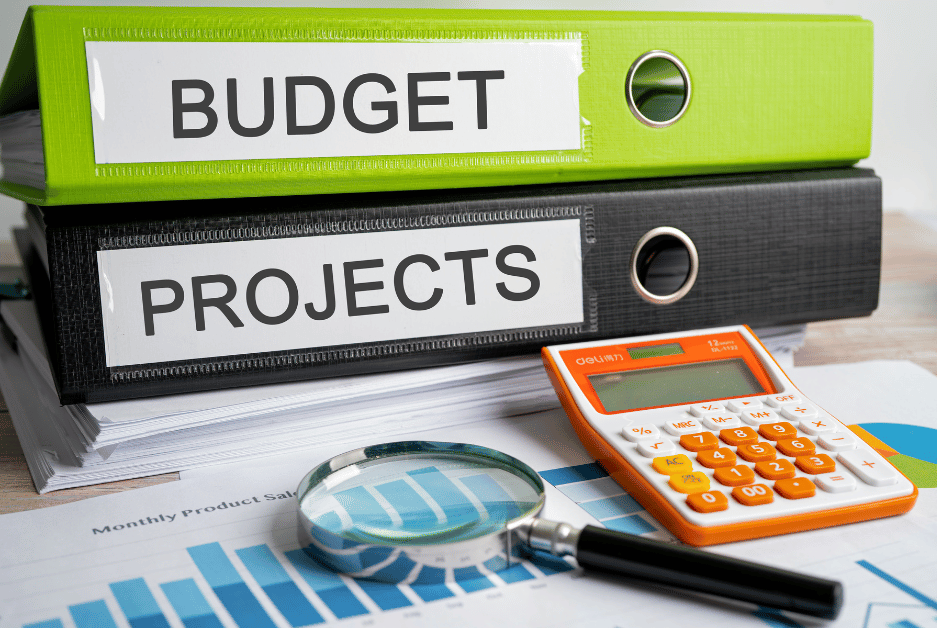When you first start out as a Property Developer, just doing one deal seems overwhelming. But as time passes, chances are you'll get the itch and want to do more.
And while doing one small deal, such as putting a unit in a backyard, is relatively straightforward to finance, having multiple deals, particularly if they're larger, is a whole other ball game.
Apart from anything else, at some point growing will involve moving from residential financial to commercial loans. So what does it take to make the transition into bigger and multiple deals, when it comes to finance?
Starting Out
 As a budding Property Developer, there's a lot to learn. If you have your own equity, it's often easiest to scale as far as you can go with your own equity and residential finance.
As a budding Property Developer, there's a lot to learn. If you have your own equity, it's often easiest to scale as far as you can go with your own equity and residential finance.
Even if you need to work with joint venture partners, smaller projects can be funded using residential finance, and so you still won't need to move across to commercial lenders early on.
One thing that does come up at this level is the idea of cross-collateralisation. This is where you use one lender for multiple projects. In return, the lender uses all of your available properties as collateral for each loan.
It sounds harmless enough, and in fact it's often easier to get the maximum amount of loan funds by using one lender rather than different lenders.
But if things go wrong, it can quickly become a nightmare. Most of the time your home will be part of the security for the loans, and if the lender has to sell off an asset to recoup their costs, guess what - your lovely home is way easier to sell quickly than a development site gone wrong.
Having said that, there's also some benefit in developing a long-term relationship with one lender. Again, this may not be the best strategy from an asset protection standpoint, but it may mean you're dealing with a lender who's more familiar with you and your ability to develop successfully, and therefore more willing to be flexible.
There's no doubt ease of lending versus the level of asset protection you'd like is something of a juggling act to get right! Which leads me into...
Seek Professional Advice
There comes a point where it's most likely to be in your best interests to engage with professionals such as mortgage brokers, financial advisors, and real estate lawyers who specialise in commercial finance. They can provide valuable insights, guide you through the process, and help you find the best financing options for your needs.
Build a strong team, and they will certainly make your life easier as you scale up into doing multiple deals at the same time.
Funnily enough, though, you might find that once you really hit the big leagues you circle back around to dealing with lenders directly, as you become a premium client of theirs.
 I remember hearing a property educator say once: "If you owe the bank 1 million dollars, it's your problem. If you owe them 100 million dollars, it's their problem." If you're a big enough fish, it's possible they will fall over themselves to gain your business, including by giving you your own personal banker. Never lose sight of why they're doing it though!
I remember hearing a property educator say once: "If you owe the bank 1 million dollars, it's your problem. If you owe them 100 million dollars, it's their problem." If you're a big enough fish, it's possible they will fall over themselves to gain your business, including by giving you your own personal banker. Never lose sight of why they're doing it though!
Financial
Before you get anywhere near that sort of rarefied air though, you need to prove yourself. And the biggest part of that is demonstrating your ability to understand and execute the financial side of a property development.
You need to create realistic financial projections for each development project, including estimated costs, expected returns, and a contingency plan. Lenders will want to assess the viability and profitability of your projects before approving financing.
The second part is managing your cash flow effectively. That's a skill you need to develop when you have a single project - it becomes even more crucial when you are running multiple projects.
While you should isolate each project's finances, managing multiple property developments requires even more careful cash flow management. Plan for contingencies, account for unforeseen expenses, and ensure you have sufficient funds to cover construction costs, holding costs, and loan repayments during each project's lifecycle.
Experience
It's given lots of different names, like Previous Track Record, Proven Track Record and more, but this all boils down to how much experience you have as a Property Developer.
This makes sense. A lender is taking a big risk on you when they lend you money, so the more evidence they have that you've either done similar developments before or have other relevant experience, the more comfortable they are with lending you money.
You need to demonstrate a successful history of property developments to gain their trust. Highlight your previous projects, their profitability, and positive outcomes to showcase your expertise and experience in the field.
The bottom line is that at some point as you grow your capacity as a Property Developer, you're going to end up talking to commercial lenders. With careful planning, a thorough knowledge of the project and its numbers, and some runs already on the board with previous successful projects, commercial lending shouldn't be a scary prospect - it should be an exciting one!
And while doing one small deal, such as putting a unit in a backyard, is relatively straightforward to finance, having multiple deals, particularly if they're larger, is a whole other ball game.
Apart from anything else, at some point growing will involve moving from residential financial to commercial loans. So what does it take to make the transition into bigger and multiple deals, when it comes to finance?
Starting Out
Even if you need to work with joint venture partners, smaller projects can be funded using residential finance, and so you still won't need to move across to commercial lenders early on.
One thing that does come up at this level is the idea of cross-collateralisation. This is where you use one lender for multiple projects. In return, the lender uses all of your available properties as collateral for each loan.
It sounds harmless enough, and in fact it's often easier to get the maximum amount of loan funds by using one lender rather than different lenders.
But if things go wrong, it can quickly become a nightmare. Most of the time your home will be part of the security for the loans, and if the lender has to sell off an asset to recoup their costs, guess what - your lovely home is way easier to sell quickly than a development site gone wrong.
Having said that, there's also some benefit in developing a long-term relationship with one lender. Again, this may not be the best strategy from an asset protection standpoint, but it may mean you're dealing with a lender who's more familiar with you and your ability to develop successfully, and therefore more willing to be flexible.
There's no doubt ease of lending versus the level of asset protection you'd like is something of a juggling act to get right! Which leads me into...
Seek Professional Advice
There comes a point where it's most likely to be in your best interests to engage with professionals such as mortgage brokers, financial advisors, and real estate lawyers who specialise in commercial finance. They can provide valuable insights, guide you through the process, and help you find the best financing options for your needs.
Build a strong team, and they will certainly make your life easier as you scale up into doing multiple deals at the same time.
Funnily enough, though, you might find that once you really hit the big leagues you circle back around to dealing with lenders directly, as you become a premium client of theirs.
Financial
Before you get anywhere near that sort of rarefied air though, you need to prove yourself. And the biggest part of that is demonstrating your ability to understand and execute the financial side of a property development.
You need to create realistic financial projections for each development project, including estimated costs, expected returns, and a contingency plan. Lenders will want to assess the viability and profitability of your projects before approving financing.
The second part is managing your cash flow effectively. That's a skill you need to develop when you have a single project - it becomes even more crucial when you are running multiple projects.
While you should isolate each project's finances, managing multiple property developments requires even more careful cash flow management. Plan for contingencies, account for unforeseen expenses, and ensure you have sufficient funds to cover construction costs, holding costs, and loan repayments during each project's lifecycle.
Experience
It's given lots of different names, like Previous Track Record, Proven Track Record and more, but this all boils down to how much experience you have as a Property Developer.
This makes sense. A lender is taking a big risk on you when they lend you money, so the more evidence they have that you've either done similar developments before or have other relevant experience, the more comfortable they are with lending you money.
You need to demonstrate a successful history of property developments to gain their trust. Highlight your previous projects, their profitability, and positive outcomes to showcase your expertise and experience in the field.
The bottom line is that at some point as you grow your capacity as a Property Developer, you're going to end up talking to commercial lenders. With careful planning, a thorough knowledge of the project and its numbers, and some runs already on the board with previous successful projects, commercial lending shouldn't be a scary prospect - it should be an exciting one!
